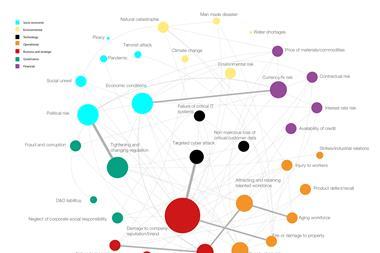Act has resulted in changes to policy wordings, report finds

A new Airmic report launched today looks at the impact of the Insurance Act 2015 since it became effective in August 2016.
The Insurance Act was designed to create a stronger relationship between insurance buyers and insurers, and improve the understanding of this risk by all relevant parties. This paper examines how market practice has changed because of the Act, and whether the Act’s aims have been achieved during its first 10 months.
The report discusses three key areas of the Act:
1. The new duty of fair presentation
2. Changes to policy terms
3. The new remedies available to insurers in the event of an insurance buyer not providing a fair presentation
Under the Act, risk managers must meet the more specific criteria of the duty of fair presentation compared to the old duty of disclosure. “We have found that our members have been driving better conversations with their broker and their insurer to make sure they meet the needs of the Act,” says Georgina Oakes, research and development manager at Airmic and author of the report.
“We have spotted a trend for insurance buyers and their brokers to present the risk to insurers and then, were possible, ask insurers to sign off that a fair presentation has been provided.”
She adds that this goes quite far beyond the Act, which is designed to improve understanding of the risk by all parties, and offer remedies to insurers if at a later stage it is found that a fair presentation wasn’t provided. “Effectively insurers are waiving those remedies available to them if they sign off something as fair presentation. This can be seen as a positive for insurance managers, but we want to warn our members that they shouldn’t just be relying on any such agreements which could themselves be based on misunderstanding.”
Airmic is therefore urging its members to focus their attention on having a better dialogue with their insurers, looking further and wider across their business to collect data to achieve the duty of fair presentation and presenting that information in a way that’s clear and acceptable for insurers.
Oakes explains that some Airmic members have reported that although their broker is very good at helping them understand their new duties under the Act, they are not always clear on how they as the broker will contribute to this duty. Airmic members report that standard Terms of Business Agreement wordings emphasise the duties of the insured and limit the broker’s own involvement.
“Brokers are the agents of the insured and some of the duty of fair presentation does fall towards them. Insurance buyers must therefore look carefully at the terms of business agreement and clarify both their roles and their brokers’ role. They must be clear that all parties are performing as the Act requires, and that their broker is carrying out the activities they as buyers expect them to
In terms of policy terms, Airmic welcomes that warranties have become suspensive conditions and basis clauses have been removed.
“We are conscious that there appears to have been an increase in the number of conditions precedent clauses that are starting to appear in policies and these might be placed in policies to maintain some of the pre-Act remedies that were available to insurers. Although we’re not necessarily against conditions precedent clauses, we believe that insurance buyers need to be clear where those conditions have appeared in their policies because they might not always be the most clear-cut clauses,” Oakes explains.
“Many of our members are now legally reviewing their policy wordings. They don’t need to do that every year, but if they are going to do a legal review of their policy wordings at any point, now is the perfect time to do so to ensure that you’re spotting individual conditions precedent clauses and sweep up clauses that turn all policy terms in conditions precedent. Buyers must also have a thorough idea of the consequences of non-compliance of any of those terms.”
Within the Act a number of remedies are available to insurers if an insurance buyer doesn’t disclose all the information as they should have done, or if there’s a misrepresentation. Clauses regarding remedies include reducing a claim by a proportional amount, or requiring payment of additional premium. An insurer can also ignore the policy entirely if it appears there is a deliberate or reckless non-disclosure.
“There is some indication of brokers and insurance buyers requesting clauses that go beyond the proportionate remedies mapped out within the Act and are more favourable to the buyer. For example, some policies are now being issued where insurers can’t reduce a claim proportionally, but they can require a payment of additional premium which will normally be favourable to the insured, or they can give the choice to the insured, you can either decide to pay us additional premium or we can reduce the claim.”
Airmic thinks this is largely going to be positive for risk managers, but insureds shouldn’t just take those clauses without having a good examination of their claims experiences. Every claim is different and sometimes paying additional premium will be better, while other times having a reduction in the claims cost will be more favourable.




















No comments yet